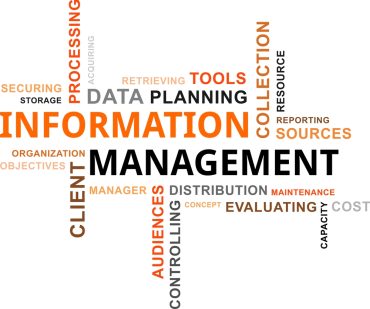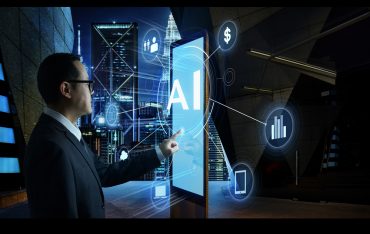
In this week’s real-time analytics news: Moderna and IBM team to use AI, blockchain, and cloud to get real-time insights for smart vaccine management, and more.
Keeping pace with news and developments in the real-time analytics market can be a daunting task. We want to help by providing a summary of some of the items our staff came across each week. Here are some of the news items from this week:
Moderna and IBM announced their intentions to explore technologies, including artificial intelligence, blockchain, and hybrid cloud, that could help support smarter COVID-19 vaccine management. Central to the effort will be a pilot of open, standardized, technology-enabled vaccine distribution approaches aimed to improve supply chain visibility and foster near real-time tracking of vaccine administration. Initial work will focus on vaccine management solutions that provide end-to-end traceability to address potential supply chain disruptions. The solutions will help governments and healthcare providers to quickly and securely share data regarding individual vaccine batches as they travel through the COVID-19 supply chain, from manufacturing facilities to administration sites.
Cambridge Quantum Computing announced the publication of a research paper (available here) that provides details of the largest ever experimental implementation of Natural Language Processing (NLP) tasks on a quantum computer. Completed on an IBM quantum computer, the experiment, which instantiated sentences as parameterized quantum circuits, embeds word meanings as quantum states which are “entangled” according to the grammatical structure of the sentence.
ScaleOut Software announced that it has joined Digital Twin Consortium to help define and advance the use of digital twin technologies across various industries. ScaleOut Software’s streaming analytics platform leverages the digital twin concept by associating a software component, called a “real-time digital twin,” with every data source to analyze the incoming telemetry from that data source. Large systems, such as trucking fleets or access control systems, often require thousands of data sources to be simultaneously monitored. Each real-time digital twin maintains dynamic state information that assists in predictive analytics and other use cases. This enables deeper inferencing about the evolving state of each data source than otherwise possible.
Deloitte announced the launch of the Deloitte Center for AI Computing, which is designed to accelerate the development of artificial intelligence (AI) solutions for Deloitte clients. Built on NVIDIA’s DGX A100 systems, the Center brings together the supercomputing architecture and AI expertise that clients require as they become AI-fueled organizations.
DataRobot announced it is opening applications for the second cohort of its AI for Good: Powered by DataRobot program. The AI for Good program provides nonprofits and social good organizations with pro bono access to DataRobot’s end-to-end enterprise AI platform, along with hands-on support from the company’s dedicated customer success team.
Sumo Logic announced new updates to the Sumo Logic Observability Suite, including Service Maps and Service Dashboards, the extension of its Root Cause Explorer solution to include Kubernetes metrics and tracing, expansion of its Global Intelligence Service for Kubernetes, as well as a new beta program for both AWS Lambda support and Browser Real User Monitoring. These additions allow DevOps and site reliability engineers (SREs) to get a holistic view of all microservices to identify and resolve issues faster.
Firedome and Pepper IoT announced a strategic partnership to protect consumer Internet of Things (IoT) devices. The partnership brings together comprehensive cybersecurity, video, and data protection capabilities to everyday consumer devices that are rapidly occupying homes. Specifically, the companies will combine Firedome’s device agent and Pepper’s secure and U.S.-based cloud platform and user interfaces. The approach provides end-to-end monitored cybersecurity protection, fully encrypted data and video, and the ability to protect and remediate the increasingly common attempts to access home networks through IoT devices.
Aiven announced a technical alliance with Humanitec. Aiven’s service lets developers use various open-source managed databases on AWS, GCP, Azure, DigitalOcean, and UpCloud, standardizing the developer experience in the cloud, while Humanitec performs the equivalent for the application layer. Humanitec users build their own Internal Developer Platform (IDP), then plug into existing delivery, orchestration, and management tools like your CI Pipeline, Kubernetes Cluster, or an Aiven database service. Together, Aiven and Humanitec aim to keep overhead within operations teams as low as possible and provide developers a customized, reliable solution based on their unique needs.
March Networks introduced its X-Series Hybrid Recorders, a new high-performance platform that’s optimized to support Artificial Intelligence (AI) applications with NVIDIA system-on-chip (SoC) technology. The X-Series delivers a 400% increase in throughput over the company’s previous-generation recorders. It supports analog, HD analog, and IP channels. Available in 16, 24, 32, 48, and 64-channel configurations, the embedded, Linux-based appliances also feature a dedicated AI engine and SoC technology from American GPU and AI computing leader NVIDIA.
JFrog announced that its DevOps Platform tools –JFrog Artifactory and JFrog Xray – are available with native deployment templates for customers using AWS GovCloud (US) and Azure Government clouds. Regulated industries and customers who use Government Clouds’ secured environments can use these deployment options – that provide native, simple, and secure installation – along with their existing JFrog self-hosted license, to benefit from JFrog’s solutions in these environments. This enables them to easily take advantage of JFrog’s solutions to streamline their DevOps adoption at scale and to accelerate and secure their software releases.
TriggerMesh announced broad support for AWS EventBridge as well as bi-directional integrations with SaaS and on-premises applications. TriggerMesh enhances new EventBridge functionality by providing a way for cloud-native developers to consume and enrich events using AWS infrastructure and then forward the events to other cloud services and data center applications. TriggerMesh can act as a broker for these events to dozens of cloud services, including Salesforce, Datadog, Twilio, Sendgrid, Elastic, and including off-the-shelf or custom on-premises applications through one consistent cloud-native platform.
Siren announced the release of Siren 11.1. The latest version of Siren focuses on ease of use and control, with new functionality simplifying many day-to-day tasks for the analyst and business user. Usability has been addressed with the addition of a new Search UI which is also compatible with mobile devices. In terms of organizational control, a new deep audit feature is available as well as support for end-user certificate security. Finally, Siren announces that the platform can now be deployed on top of Elastic Cloud Enterprise (ECE) and Elastic Cloud Service.
Leopard Imaging Inc. a global provider of embedded camera design and manufacturing, announced it is collaborating with three companies to deliver EdgeTuring™: a next-generation artificial intelligence (AI) processing solution for video analytics. Leopard is working with Hailo, an AI chipmaker for edge devices, Socionext, a provider of advanced system-on-chip (SoC) solutions for imaging and video systems; and Amazon Web Services (AWS) to launch their solution. The venture produces high image quality and high energy efficiency for AI inference nodes, benefiting a wide range of applications in industrial automation, smart devices, smart retail, and others.
Iterative.ai announced the latest releases of Data Version Control (DVC) and Continuous Machine Learning (CML) open source projects. DVC and CML remove the need for proprietary AI Platforms (such as AWS SageMaker and Microsoft Azure ML Engineer) by extending traditional software tools like Git and CI/CD to meet the needs of ML Engineers. DVC provides users with a Git-like interface for versioning data and models, bringing version control to machine learning and solving the challenges of reproducibility. CML is an open-source library for implementing continuous integration and delivery (CI/CD) in machine learning projects. Together, CML and DVC provide ML Engineers a number of features and benefits that support data provenance, machine learning model management and automation.
AVATA and Kalypso announced a partnership to help clients accelerate digital transformation initiatives with Oracle’s suite of Cloud applications. The two firms’ complement each other’s Oracle Cloud application implementation capabilities. AVATA delivers strategic and implementation services related to Oracle’s SCM, ERP, and EPM solutions, and Kalypso provides services related to Oracle’s PLM, EDM, and emerging applications, such as IoT, Blockchain, and Data Science. With this combined expertise, the partnership can provide comprehensive coverage across Oracle’s Cloud applications portfolio to accelerate digital innovation and Industry 4.0 initiatives.
Real-time analytics news in brief:
Cloudera announced the availability of the Cloudera Data Platform (CDP) Operational Database on both Amazon Web Services (AWS) and Microsoft Azure. CDP Operational Database is a fully managed cloud-native operational database with scale, performance, and reliability.
Accenture agreed to acquire Pollux, a provider of industrial robotics and automation solutions. The acquisition will expand Accenture’s capabilities for clients in consumer goods, pharmaceutical, and automotive industries seeking to make their factories, plants, and supply chains more productive, safe, and sustainable.
Hewlett Packard Enterprise announced enhancements to HPE SimpliVity for the enterprise edge, including advancements in data protection with native backup to cloud and centralized backup for compliance. Additionally, HPE is announcing support for containers to run cloud-native applications at the edge and drive business transformation.
Lenovo announced a new portfolio of embedded computers for the edge. Building from the existing edge portfolio from Lenovo, the ThinkEdge devices – the new ThinkEdge SE30 and ThinkEdge SE50 – are small, rugged, and powerful enough to meet the needs of enterprise data processing, security, and scalability at the edge.
DevGraph has released CloudFix AWS cost optimization software. It automatically analyzes AWS accounts to find cost-savings opportunities and automatically deploys fixes at scale – instantly reducing cloud costs.
Baker Hughes and C3 AI announced the launch of BHC3 Production Schedule Optimization (PSO), an enterprise AI application for industrial demand planning and manufacturing production scheduling. The application improves supply chain and delivery performance for highly engineered products while minimizing manufacturing costs.
Teledyne e2v announced a new technology and industrial collaboration with Yumain. Together, the companies will develop cutting-edge bio-inspired vision solutions that can enable innovation in industrial applications.
Saama Technologies announced a collaboration with Oracle to integrate Saama’s smart applications with the Oracle Health Sciences Clinical One platform. The collaboration will provide pharmaceutical companies with AI-driven insights to speed clinical trials.
Observe.AI unveiled its new AI-powered Agent Performance & Coaching product line that empowers CX (Customer Experience) leaders to make data-driven coaching decisions that impact supervisors, quality analysts, and agents.
If your company has real-time analytics news, send your announcements to [email protected].
In case you missed it, here are our most recent previous weekly real-time analytics news roundups:




























